For many of us, the holidays are a time to gather around a shared meal. Pantries are perused, cookbooks are cracked, and calls are made to relatives for their special recipes (if you missed it, check out our community cookbook with contributions from participants, volunteers, and staff!).
Here’s what we know at the San Francisco-Marin Food Bank: in sharing a meal, we share our humanity. We’ve spent the last 365 days gathering stories from the community and asking: “what does food mean to you?”
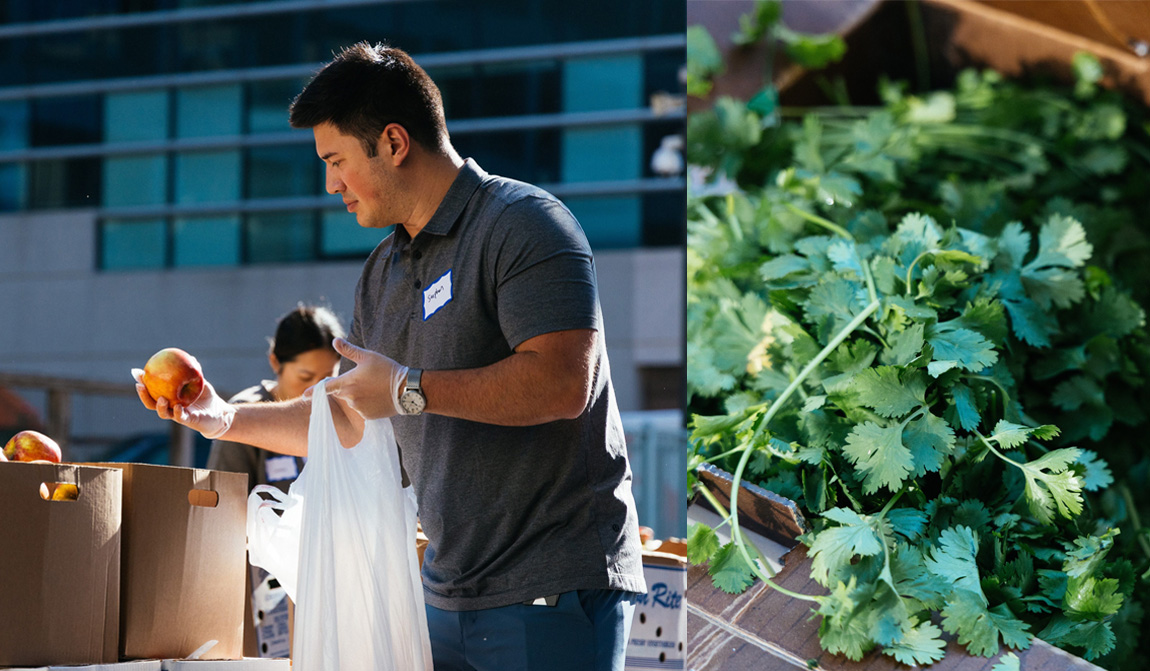
“Food means nourishment”
One sunny February morning, we visited our partner Code Tenderloin in San Francisco and heard from volunteer Arielle: “Food means nourishment – of the mind, body, and soul. Food makes you feel good, gives you confidence and courage that maybe you don’t have when you’re hungry. Maybe best of all is you can share it with people – it’s the way to a person’s heart.”
Code Tenderloin’s Executive Director, Donna Hilliard, added: “I think, with our culture, food is everything. When we come together, we eat. When we celebrate, we eat. When we’re sad, we eat. Sharing meals especially means a lot. For the folks at Code Tenderloin, all of us have been on the ground, so we serve our food with love. That’s why so many people are comfortable coming back – we want them to feel like our extended family.”
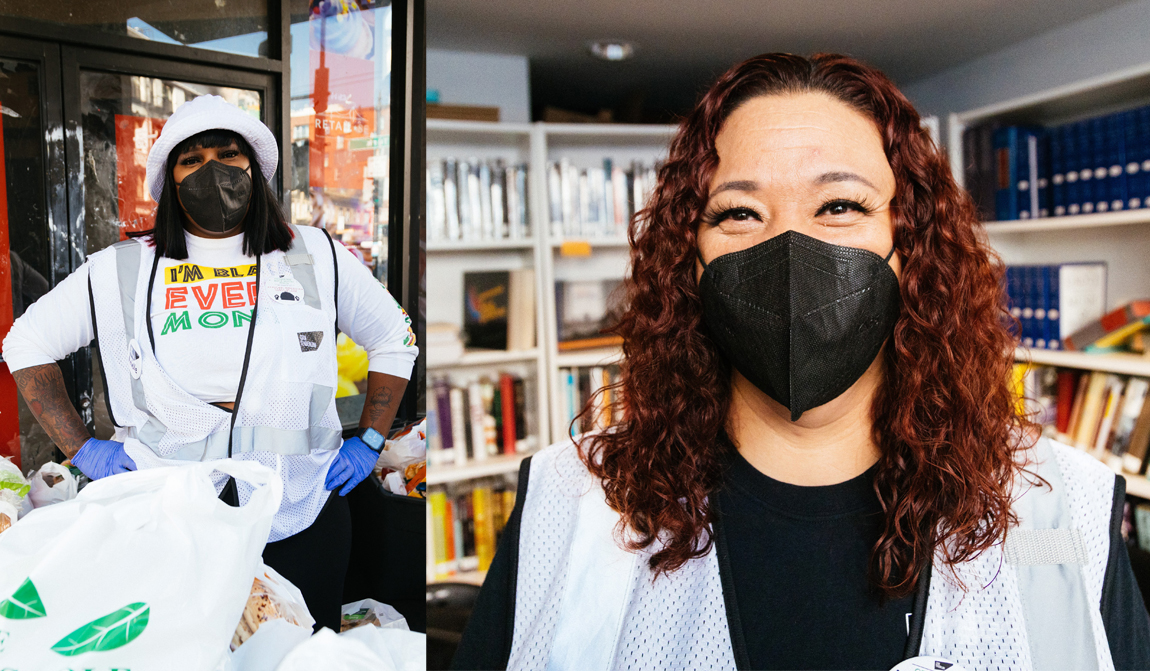
CalFresh recipient Yurin told us how a balanced meal means wellness for her family. “It’s something fundamental to health,” she shared. “Having good food, healthy food, is vital to every person every day.”
And at a bustling Pop-up Pantry in San Francisco’s SoMa, participant Russ chatted with us after picking up his groceries. “It means everything,” he said, showing us a watermelon he was excited to slice into. “I’m learning how to eat healthier now that I can get more and better food from this pantry. I turn 65 next August. You can live a lot better as you learn how to cook, what to eat, and what not to eat.”
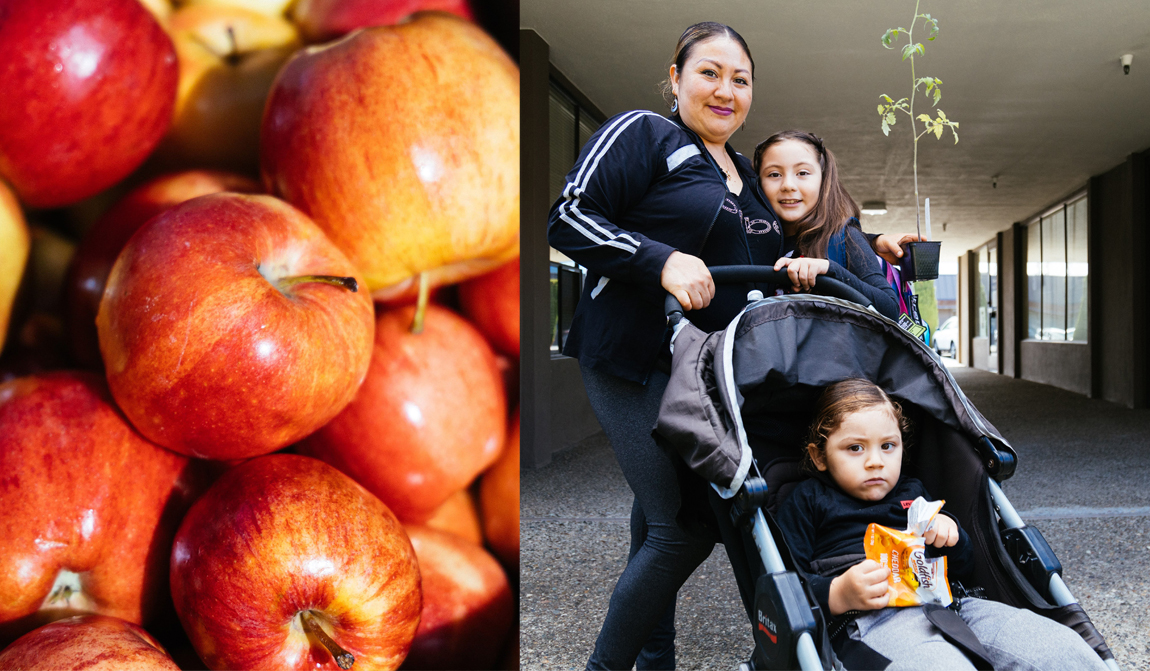
Making Space for Joy
“Food brings us together, you know? If you got a group of people together, bring a meal. Ain’t nobody fussing when you’re eating.” Cliffton is a longtime San Francisco resident and an artist – recently, he painted ‘Spirit of the Fillmore’ in the Buchanan Street Mall. He’s also a participant at our Rosa Parks Pop-up Pantry. “Food is nourishment for the body,” he continued. “Your body won’t allow you to be negative in that moment, because it’s getting good food.”
That’s the not-so-obvious benefit of a full pantry: with no worries about where the next meal will come from, our neighbors can bring a little more sweetness into their lives.
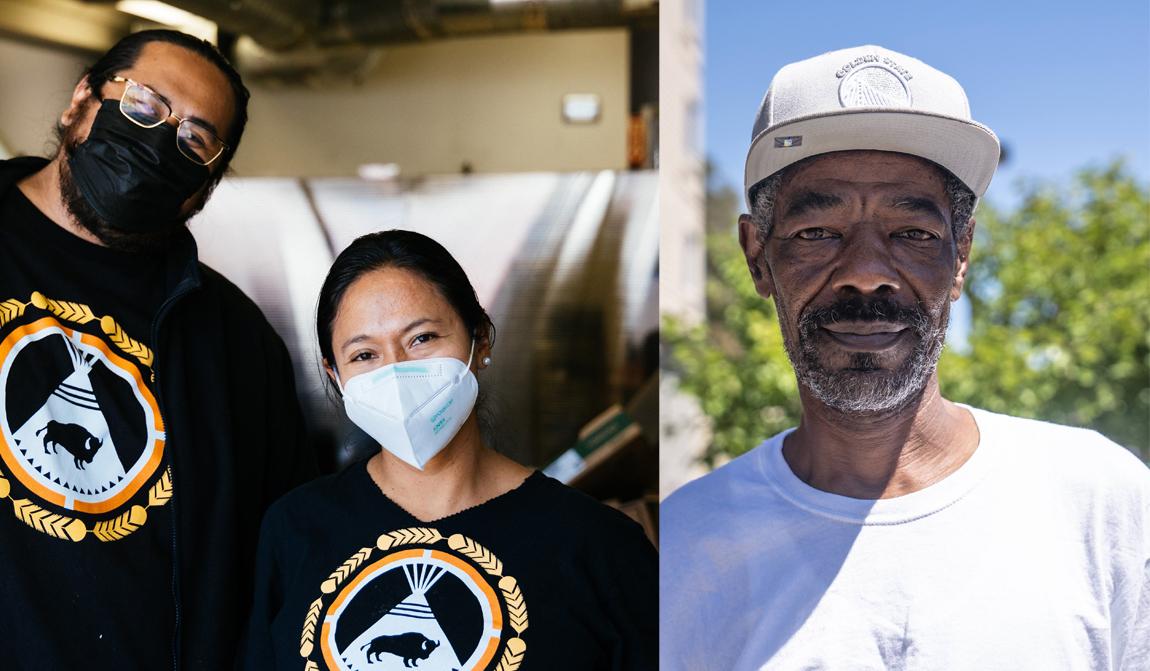
Laura Cedillo, Program Manager at our partner Native American Health Center [https://www.nativehealth.org/], told us that “food means someone’s looking out for you and taking care of you.” Laura and her team pack bags of healthy groceries for anyone who needs them in a second-story space that’s part health clinic in the Mission. She views food as memories as much as sustenance. “When I think of food, I think of family, and I think of being cared for. It’s like, hey, how do I love myself? One of my best friends is Mohican from the New York area, and I remember on her birthday she was like, ‘I’m going to make myself some butternut squash.’ And now every time I make butternut squash, I remember my friend. I remember people I love when I cook.”
More than Just Calories
We heard loud and clear from almost everyone we spoke to that food is much more than something that fills your stomach for a few hours.
“I believe food means connection to others,” said Maria, who is both a participant and a volunteer at St. Peter’s Catholic Church in the Mission. “You can meet someone at the food pantry and get to know them and also know they care about you. Because all the people volunteering here, they care about all of us – that’s why they’re here.”
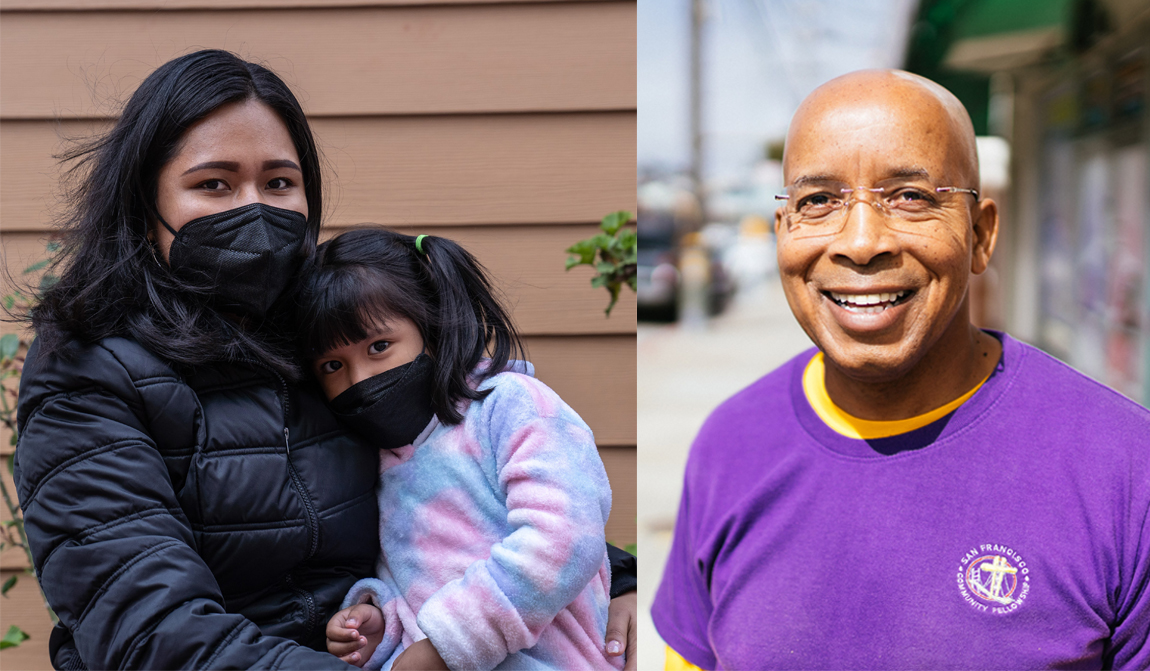
“To share food is to get to know people, right?” said Pastor Richard Roberts at San Francisco Community Fellowship one of our partners in the Excelsior. “It’s not just feeding them physical food, it’s emotional support and understanding, and getting people to a space where they feel comfortable and accepted. That’s what food means to me.”
As he spoke, Pastor Roberts watched volunteers pack grocery bags while photos of churchgoers at weddings and service days smiled down on them. For him, creating a community and holding a food pantry are all part of the same spirit.



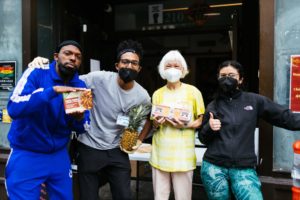
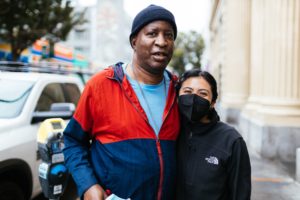
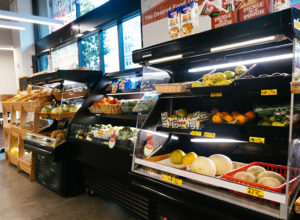
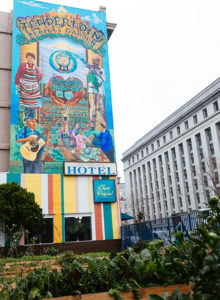
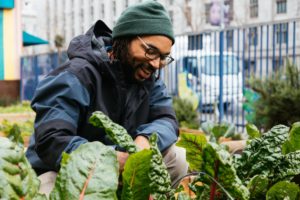
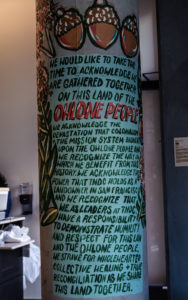
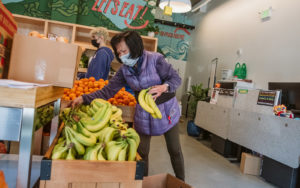
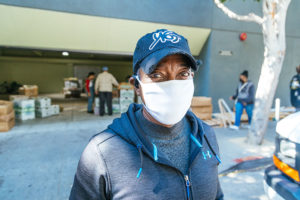 L
L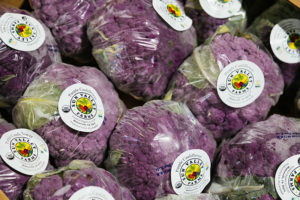 delivering more than nutrition to their parish. SFAAFBC’s holistic approach allows them to target the root causes of food insecurity by caring for the whole person.
delivering more than nutrition to their parish. SFAAFBC’s holistic approach allows them to target the root causes of food insecurity by caring for the whole person.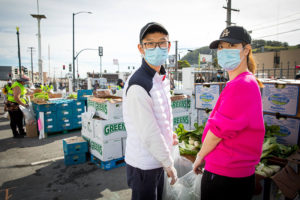 Wei Zong join other participant-volunteers in providing healthy groceries to their neighbors while also receiving food assistance themselves. For Jiakuang and his family, Thursday mornings at Cornerstone have been a time not only to receive and distribute food, but to mingle, talk, and laugh with other volunteers and food bankers.
Wei Zong join other participant-volunteers in providing healthy groceries to their neighbors while also receiving food assistance themselves. For Jiakuang and his family, Thursday mornings at Cornerstone have been a time not only to receive and distribute food, but to mingle, talk, and laugh with other volunteers and food bankers. 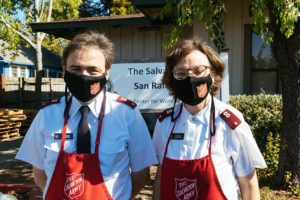 Soup. Soap. And Salvation. Since 1865, The Salvation Army has taken a holistic approach to serve those with the greatest need in our community. According to Diane Shatto, a Lieutenant and ordained minister at San Rafael’s branch of The Salvation Army, you can’t nourish people’s spirits until you nourish them with food. “That’s why our food pantry and home-delivered groceries are key activities for us.”
Soup. Soap. And Salvation. Since 1865, The Salvation Army has taken a holistic approach to serve those with the greatest need in our community. According to Diane Shatto, a Lieutenant and ordained minister at San Rafael’s branch of The Salvation Army, you can’t nourish people’s spirits until you nourish them with food. “That’s why our food pantry and home-delivered groceries are key activities for us.”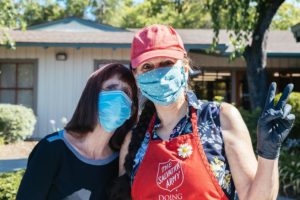 Carol Gotti has been volunteering with the Salvation Army’s food program for over ten years, and the participants are a lot more to her than names and numbers. “I’ve gotten to know about people’s lives, and you get a feeling about the things that bring people joy,” she said.
Carol Gotti has been volunteering with the Salvation Army’s food program for over ten years, and the participants are a lot more to her than names and numbers. “I’ve gotten to know about people’s lives, and you get a feeling about the things that bring people joy,” she said. 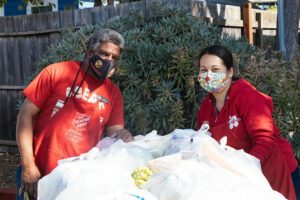 “I was the second youngest of five children with three older brothers who were always more aggressive than me about grabbing the food at dinnertime. I had hunger pains all the time, and other kids at school would make fun of me because I was skinny. It makes you feel inferior, you lose motivation, and you lose hope. And that’s how the cycle of poverty continues.”
“I was the second youngest of five children with three older brothers who were always more aggressive than me about grabbing the food at dinnertime. I had hunger pains all the time, and other kids at school would make fun of me because I was skinny. It makes you feel inferior, you lose motivation, and you lose hope. And that’s how the cycle of poverty continues.”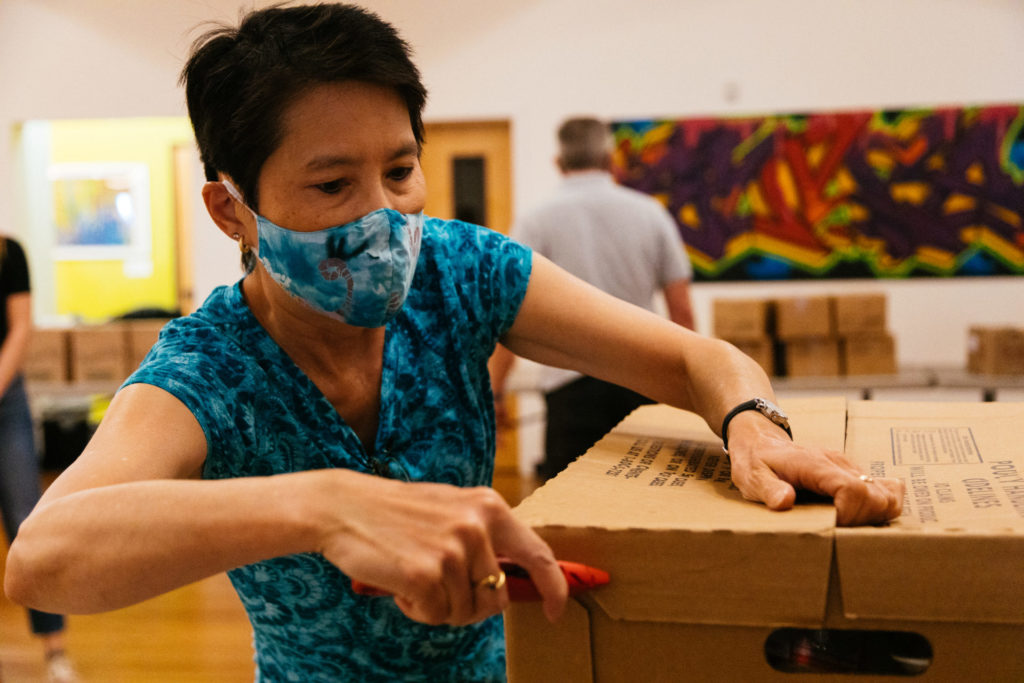
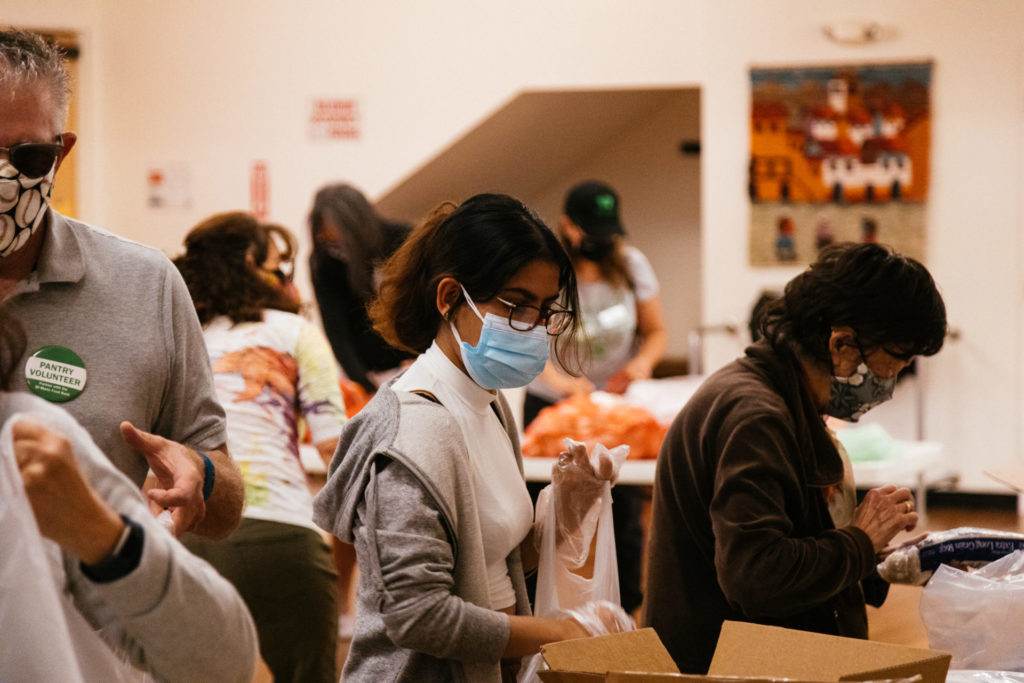
Share